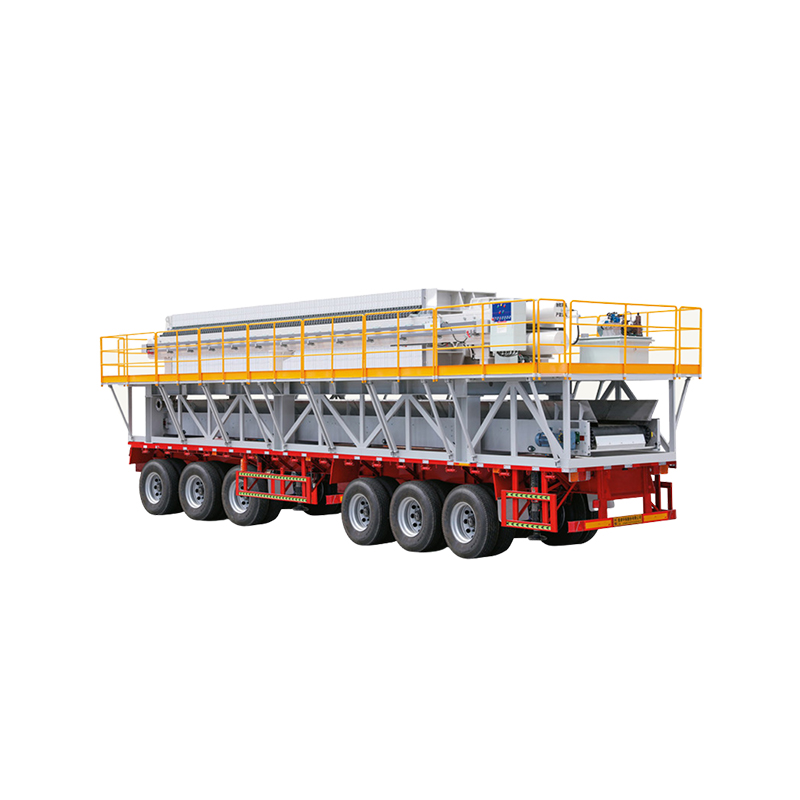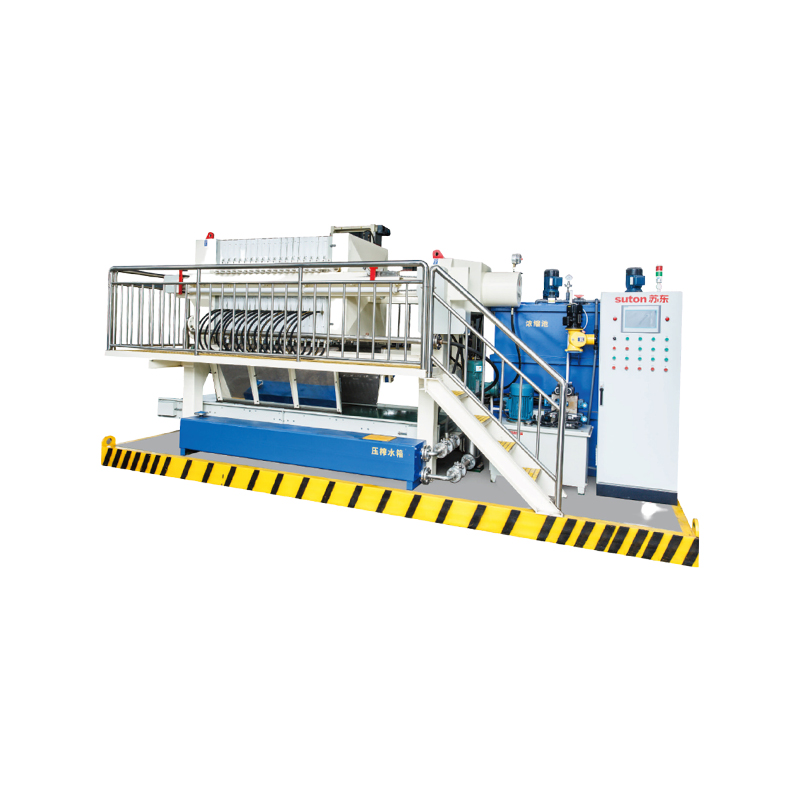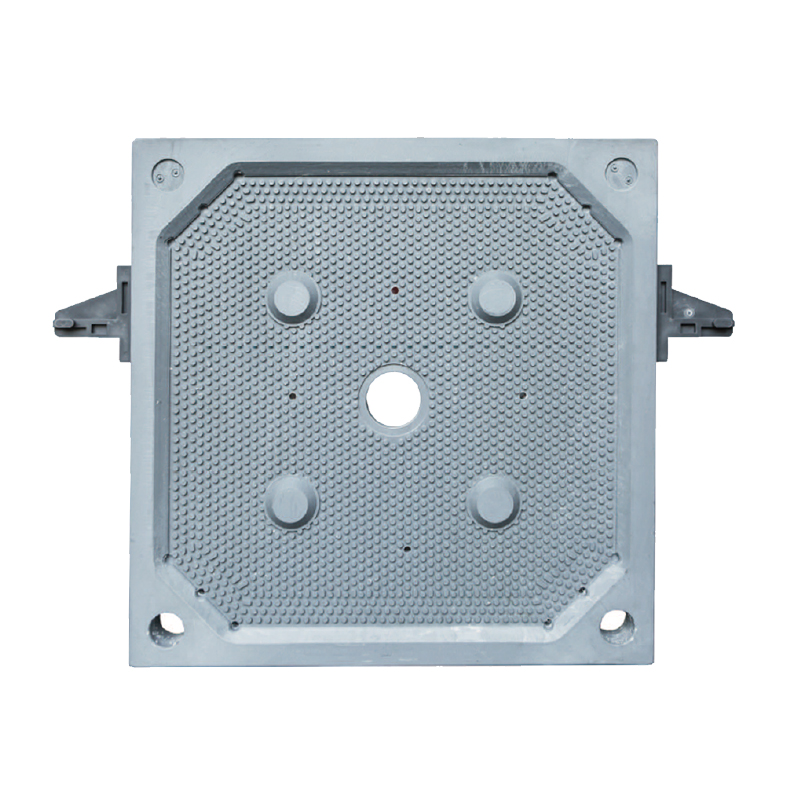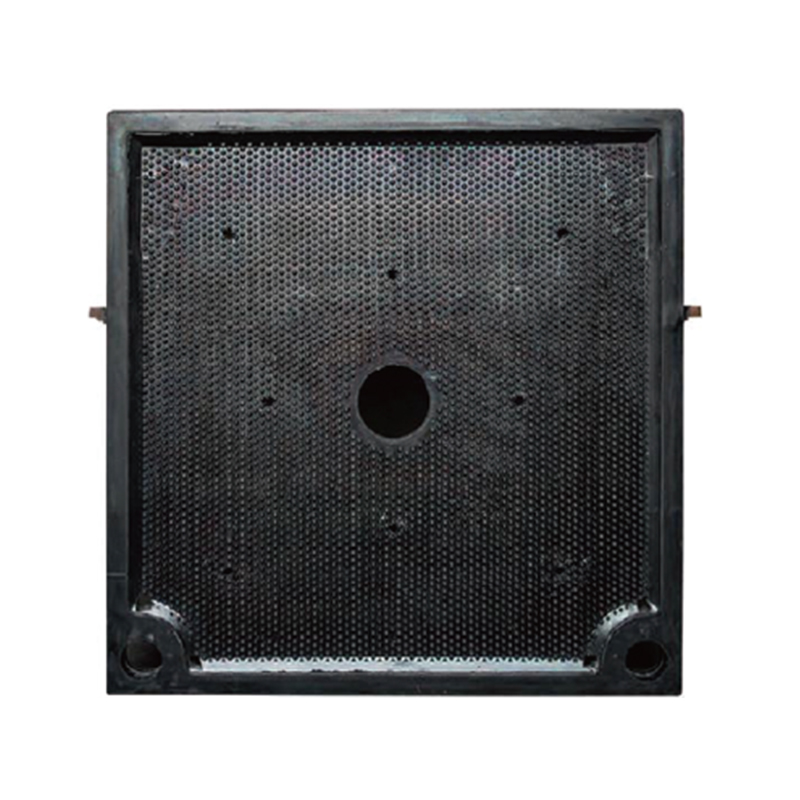Why Are Filter Press Plates Essential in Industrial Filtration Processes?
 2024.11.18
2024.11.18
 Industry News
Industry News
1. Effective Solid-Liquid Separation
At the core of the function of filter press plates is their ability to facilitate effective solid-liquid separation. When slurry or a liquid mixture enters the filter press, it flows through a series of chambers formed by the filter press plates. These chambers, when combined with filter cloths or membranes, allow the liquid to pass through while retaining the solid particles inside the press. The retained solids then form a filter cake, which can be removed after the filtration cycle is complete.
The efficiency of this process is largely dependent on the design of the filter press plates, which are engineered to optimize pressure, flow, and retention. The application of high pressure on the slurry forces the liquid to be filtered out faster and more effectively. This means that the separation process occurs within a short period of time, which increases throughput, enhances the overall productivity of the system, and reduces the need for time-consuming post-filtration processes. The well-designed structure of filter press plates ensures that each filtration cycle can handle large volumes of material without compromising on filtration quality.
In industries like food production or chemical manufacturing, where product purity is critical, filter press plates are designed to ensure that all undesirable solid contaminants are efficiently separated. As a result, these industries benefit from cleaner liquids that meet stringent quality standards and are free from particles that could otherwise degrade the final product.
2. Versatility Across Various Industries
Filter press plates are highly versatile and are used across many industries for different filtration purposes. In the mining industry, filter press plates are essential for separating valuable minerals from tailings or slurry. For example, in the extraction of gold, silver, or copper, filter press plates help to isolate the target minerals, ensuring that the process remains cost-effective and efficient. The ability to handle highly abrasive slurries without excessive wear and tear is one of the reasons these plates are so crucial in the mining sector.
In the chemical industry, filter press plates are used to separate chemicals from impurities or by-products, which helps to ensure the quality and consistency of the final chemical products. In food and beverage production, filter press plates are employed for liquid clarification, ensuring that beverages like juices or oils are free from suspended solids. For instance, in the production of edible oils, they help separate solid contaminants from the liquid oil, thereby increasing the oil's quality and yield.
In wastewater treatment, filter press plates are indispensable for handling sludge and separating water from solid waste, significantly improving the quality of the water before it is discharged or reused. As regulations for wastewater disposal become more stringent, filter press plates ensure that industries can comply with environmental guidelines while optimizing water reuse. The adaptability of filter press plates to various applications across industries is a testament to their importance in industrial filtration processes.
3. Improved Filtration Efficiency
The design and construction of filter press plates directly affect the overall efficiency of the filtration process. The precise fit of each plate, along with its ability to withstand high pressure, allows for consistent and effective filtration. When used in combination with filter cloths, these plates create a series of sealed chambers that force the slurry through the media. As the pressure builds up, the liquid is squeezed out of the slurry, leaving behind the solid particles in the form of a filter cake.
This process leads to a high level of filtration efficiency. Unlike other filtration methods that may rely on gravity or low pressure, filter press plates apply substantial pressure, ensuring that even very fine particles are trapped and separated. Additionally, filter press plates can be used with various types of filter media, including fine mesh and membrane materials, to cater to specific filtration requirements.
Modern filter press systems often include features such as adjustable plate designs or membrane plates that exert additional pressure on the filter cake after it has formed. This results in drier filter cakes and more thoroughly filtered liquids, reducing the need for secondary drying processes or additional filtration steps. The overall result is a more efficient filtration cycle that not only reduces time but also energy consumption, translating into long-term cost savings for industrial operations.
4. Reduced Operational Costs
Filter press plates contribute to lowering operational costs in several ways. First, their design helps to maximize throughput by enabling faster filtration cycles. As filtration efficiency improves, the amount of time required to process each batch is reduced. This directly translates into higher production rates and less downtime, which is crucial in industries where time-sensitive processes are vital.
The durability of filter press plates plays a major role in minimizing maintenance and replacement costs. These plates are made from strong, durable materials such as polypropylene, steel, or stainless steel, which can withstand high-pressure conditions and aggressive chemicals over extended periods. As a result, filter press plates have a longer lifespan, reducing the need for frequent replacements and ensuring that the filtration system continues to operate at peak performance.
By optimizing the filtration process, filter press plates minimize the need for secondary treatments, such as additional drying or reprocessing. For instance, in industries like mining, where the separation of minerals is key, filter press plates help to create drier filter cakes that can be easily disposed of or further processed without requiring additional drying equipment. This not only cuts energy costs but also reduces the amount of waste produced, further lowering operational expenses.
5. Enhanced Product Quality and Purity
The high level of solid-liquid separation achieved by filter press plates ensures that the purity and quality of the filtered liquid meet the required standards for industrial applications. In industries where product consistency and safety are paramount, such as food processing, pharmaceuticals, or chemicals, filter press plates are essential for ensuring that the final product is free from impurities and contaminants.
For instance, in food and beverage manufacturing, filter press plates are used to clarify liquids such as oils, juices, and wines. This process ensures that the liquids are free of suspended solids, ensuring a cleaner product and a better taste or appearance. In chemical production, filter press plates can remove unwanted by-products, ensuring that only the desired chemical compounds remain, which is critical for maintaining the chemical integrity and quality of the final product.
Filter press plates help in wastewater treatment by effectively removing contaminants from the water. This process is vital for ensuring that treated water meets environmental standards for discharge or reuse in industrial processes. The improved filtration efficiency leads to clearer water, reducing the risk of pollutants being reintroduced into the environment. As industries face increasing pressure to meet regulatory standards for water quality, the ability to achieve a high level of filtration with filter press plates helps companies stay compliant while protecting the environment.
6. Long-Term Durability and Reliability
The durability and reliability of filter press plates are key to their success in industrial filtration applications. Constructed from robust materials like polypropylene, steel, or stainless steel, filter press plates are designed to endure extreme conditions, including high pressures, abrasive slurries, and aggressive chemicals. These materials are resistant to corrosion, wear, and damage, which allows the plates to perform consistently over time.
The high strength of filter press plates ensures that they can withstand the mechanical stresses associated with filtration, including the pressure applied during the separation process. As a result, industries can rely on these plates for long periods without the need for frequent maintenance or replacements. The ability to operate without frequent interruptions makes filter press plates a valuable asset for industries where downtime can be costly.
Many filter press plates are designed with features that enhance their durability, such as protective coatings or reinforced edges, which help prevent damage during operation. This added durability reduces the likelihood of system failure and ensures continuous operation, even under harsh conditions. The long service life of filter press plates not only reduces maintenance costs but also ensures that industrial filtration systems remain reliable and efficient for extended periods, providing businesses with high performance and reduced operational interruptions.

 English
English Español
Español हिंदी
हिंदी Tiếng Việt
Tiếng Việt









